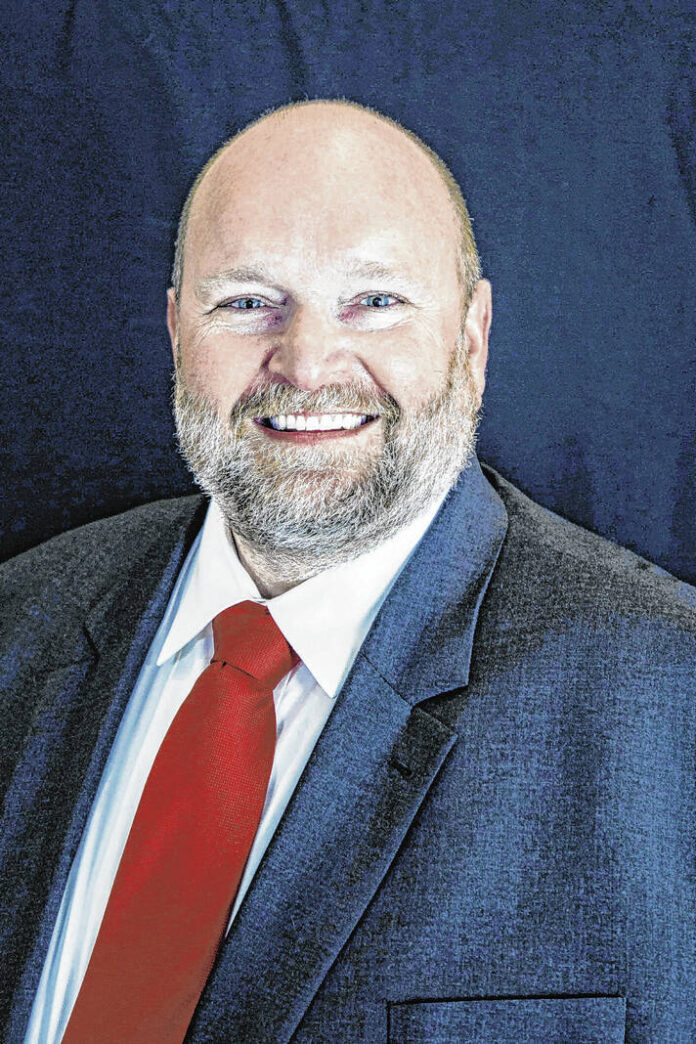The Bartholomew County Council successfully concluded an over two-year effort to obtain county-wide broadband internet service by approving an economic revitalization area and a tax abatement.
After passing an initial vote in August, a second and final vote to make all unincorporated areas of Bartholomew County an economic revitalization area was approved by the council Monday.
It was nearly three-and-a-half hours into the meeting that the council took the final step of approving a 95% abatement of all property taxes that will be owed over the next 20 years by Hoosier Network, LLC, a subsidiary of Meridiam Infrastructure North America Corp.
The final votes on both issues were approved with a vote of six in favor, with one abstention. Council member Bill Lentz said he has what might be perceived as a conflict of interest because he has a contract with an internet provider for installing equipment on his land.
So with all county government requirements met, Meridiam, an internet investment company, will now begin to invest about $33 million into buying and distributing fiber optic cable, with an initial goal of reaching 11,845 homes over the next two-and-a-half years, Bartholomew County Commissioner Tony London said.
The county is investing $4 million it received from the federal government for COVID-19 relief to reach several remote locations, added London, who also chairs the Bartholomew County Broadband Initiative Committee.
Among the 17 individuals who spoke during a public hearing was Tom Havens, executive director of the Indiana Cable and Broadband Association. London said Havens’ organization has strong ties with Comcast.
Following a 14 minute recitation from a legal document, Havens said he believes the county’s contract with Meridiam is subject to legal challenges on three grounds. He claims the agreement doesn’t ensure compliance, undermines fair competition and discriminates against other providers.
“I take this as a threat,” council member and former sheriff Mark Gorbett told Havens. “I’m not here to debate whether you are going to sue the commissioners or the county. I’m looking at what is beneficial to our taxpayers and our people in the county.”
The contract was handled by the three Bartholomew County commissioners, and was created with the guidance of local attorneys, information technology experts, highly experienced consultants and a number of prominent businesses, council member Jorge Morales said.
Morales also reminded the council the city of Columbus has a similar contract with Meridiam, “so if we are going the wrong way legally, I think the city has been, too.“
While council president Greg Duke expressed his concern that the contract might lead to a lawsuit, council member Matt Miller asked council attorney Chris Monroe if he believed Bartholomew County government could be opening itself up for legal action.
“No,” Monroe replied. “I think it’s a bluff. I think it’s late in coming.”
Havens was also reminded that all cable providers were invited to make offers during a Request for Proposals (RPF) that was ultimately awarded to Meridiam. An offer was made by Comcast, but rejected because it did not meet the proposal’s specifications, London said.
But several questions continued to be asked, especially by Duke and Miller.
“What risk do you, as a council, feel is on the table?” local resident Steve Walker asked. “Because I don’t see any risk. I only see gain for the public sector from a financial perspective.”
The council’s actions taken on Monday had the endorsement of Bartholomew County’s largest employer. Cummins Inc., Director of Corporate Responsibility Jim Schacht described broadband internet access as absolutely essential to the community’s health from the perspective of attracting and retaining talent.
High-speed internet is also necessary for economic development efforts, as well as for education, employment, social engagements and interacting with the community, he said.
“The financial abilities are there, it will result in no increases in taxes, and we feel there will be an increase in property values due to countywide broadband,” Schacht said.
While Bartholomew County REMC spent several thousand dollars over five years before concluding it wasn’t feasible for their coop to offer countywide broadband, Chief Executive Officer Courtney Metzger described the proposed abatement for Meridiam as reasonable.
“I think we have the right players at the table to make (county wide high speed internet) a stand-up project,” Metzger said.
The technology department for the Bartholomew Consolidated School Corp. has maintained a goal of making “anywhere daytime learning” available to all students – even before the 2020 outbreak of COVID-19, department director Nick Williams told the council.
What the school corporation often calls e-Learning will be valuable for hospitalized students, as well as those away at family events or college visits, Williams said.
“Broadband is desperately needed in our county,” the BCSC technology director said, adding there are already more than 700 students in the school corporation’s virtual pathway.
But most of those who expressed concerns Monday were much like coffee shop owner Tyler Hodge, who said high-speed internet isn’t available where he lives in a remote area of western Bartholomew County.
After examining all options, Hodge said he was given a quote of $35,000 to install broadband at his home by an prominent internet and cable company. The next time he tried to negotiate with the same company, the cost went up to $55,000 – and the last time he talked with them, the price shot up to $80,000, Hodge said.
Hodge said his wife, a school teacher, desperately needs broadband to do her job. He told the council the high-speed service is also important for both professional and personal purposes, as well as for his children’s education.





